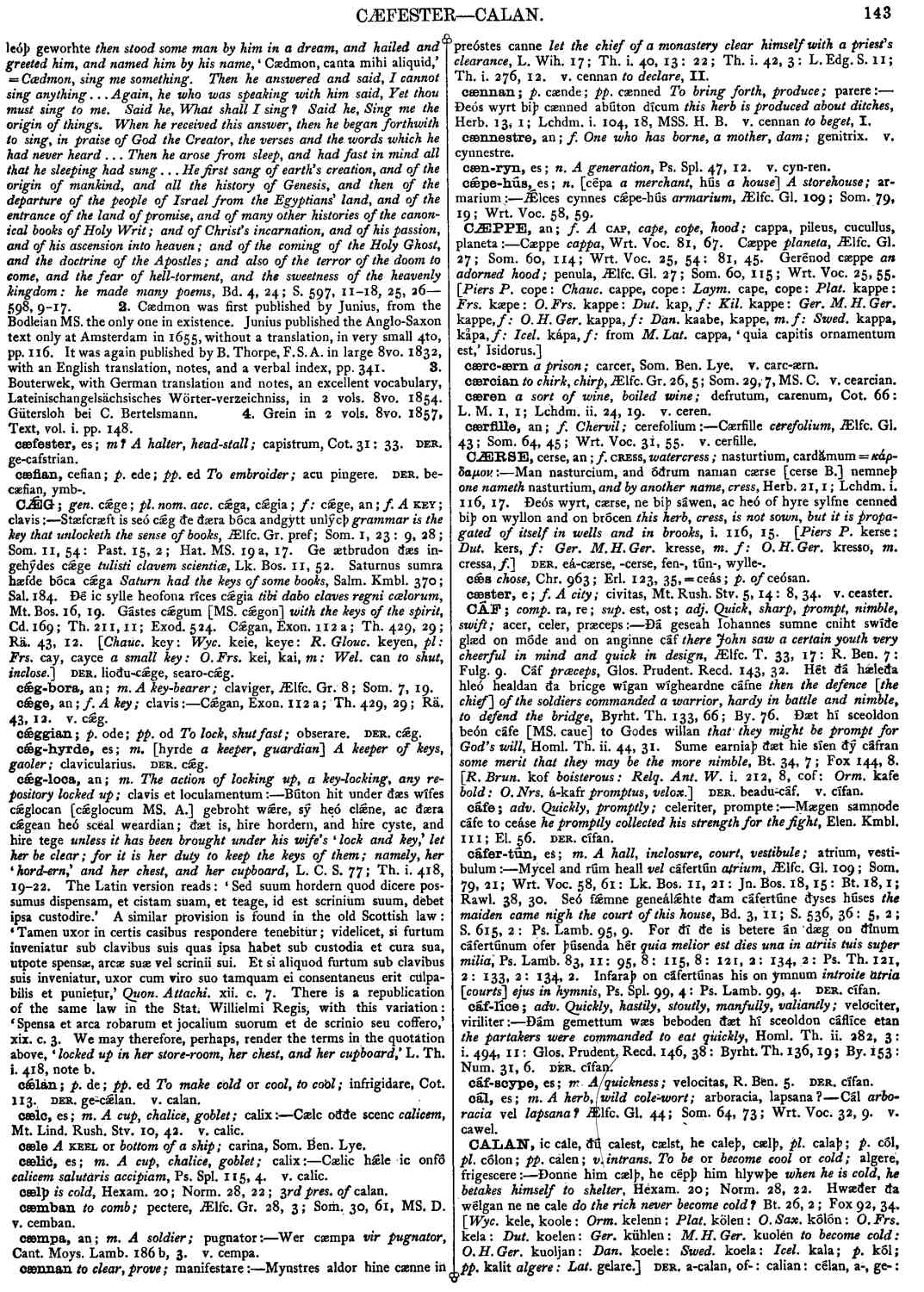CǼG
- noun [ feminine ]
-
Stæfcræft is seó cǽg ðe ðæra bóca andgýtt unlýcþ
grammar is the key that unlocketh the sense of books,
- Ælfc. Gr. pref; Som. I. 23: 9, 28; Som. 11, 54: Past. 15, 2; Hat. MS.
19a, 17.
-
Ge ætbrudon ðæs ingehýdes cǽge
tulisti clavem scientiæ,
- Lk. Bos. II, 52.
-
Saturnus sumra hæfde bóca cǽga
Saturn had the keys of some books,
- Salm. Kmbl. 370; Sal. 184.
-
Ðé ic sylle heofona ríces cǽgia
tibi dabo claves regni cælorum,
- Mt. Bos. 16, 19.
-
Gástes cǽgum [MS. cǽgon]
with the keys of the spirit,
- Cd. 169; Th. 211, 11; Exod. 524.
-
Cǽgan,
- Exon. 112a; Th. 429, 29; Rä. 43, 12.
Bosworth, Joseph. “CǼG.” In An Anglo-Saxon Dictionary Online, edited by Thomas Northcote Toller, Christ Sean, and Ondřej Tichy. Prague: Faculty of Arts, Charles University, 2014. https://bosworthtoller.com/5733.
Checked: 0